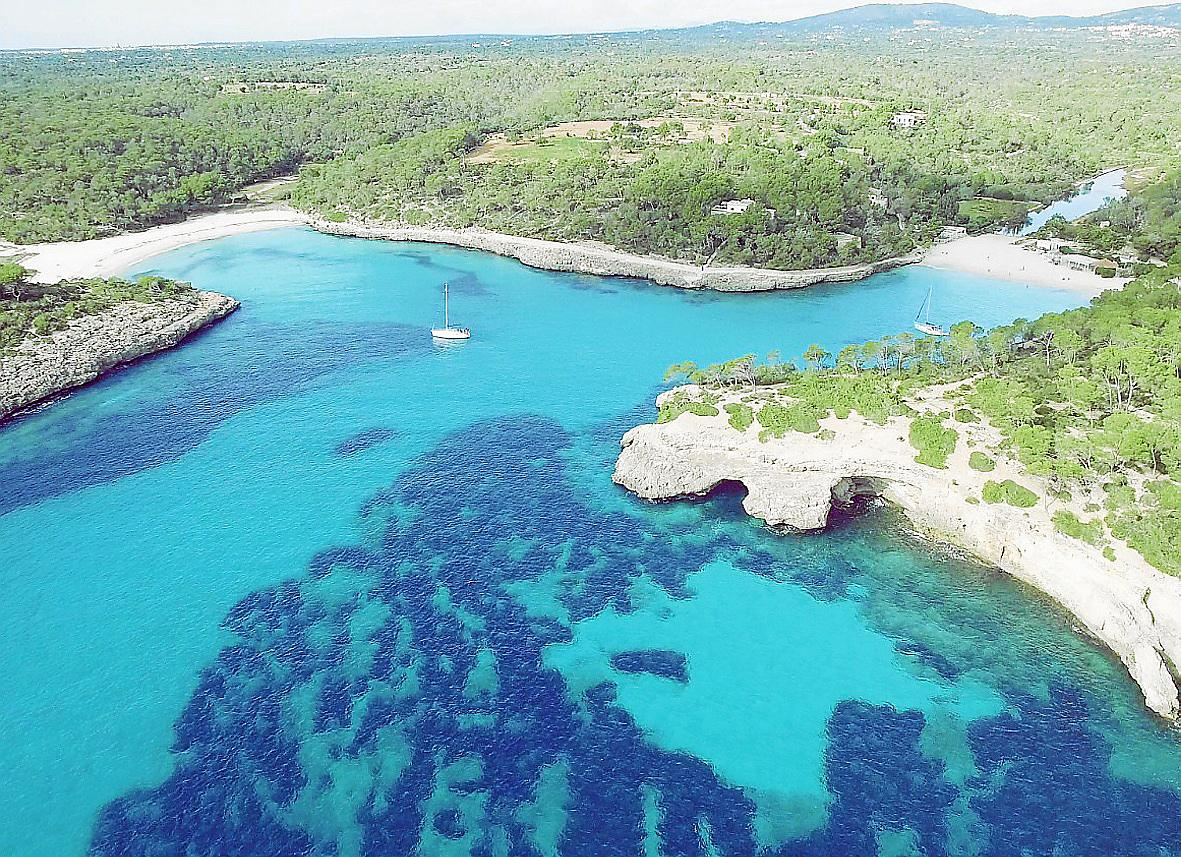Earlier this year, I returned to my beloved Cala Mondrago on the isle of Mallorca for what was going to be a nearly three-week holiday. It was my first flight since Easter 2019 and the first time back there since the summer of 2018.
As I said, the holiday there was supposed to last for nearly three weeks, but I fled five nights earlier than expected.
There were a few niggles that annoyed me: the food wasn't as good as before; the staff wasn't as accommodating as before; and the air-conditioning system in the kitchen made an extremely annoying noise that I could hear in the little extra house that the owners had built about 100 metres away from the main building. ("Casa Blanca", as it's called, has 9 twin rooms for people who return a lot and who want extra peace and quiet. Me included.) I could even hear that noise in my room with the door and windows shut and with wax earplugs firmly embedded in my ears.
However, what made me flee from a place that really does look like paradise to me was this incident...
It was the last Sunday evening, around 6 p.m. I had gone to the beach for a swim. I normally swim from one bay to the other and back. That takes me around 30 minutes.
I got into the sea, adjusted my snorkel, goggles and hat (I have a pink swimming hat that I hope is visible to others in the sea - just in case a boat comes into the swimming area - safety first!) and then I started swimming.
At first, I didn't notice anything untoward. Yes, there was a lot less biodiversity since my last visit four years before, but that had been obvious as of my first swim back there two weeks before.
It was when I started to round the corner to swim to the next bay that the 'trauma' started. The wind was up a bit and it must have churned the water and caused whatever was lying on the sea bed to rise up.
I suddenly found myself swimming in what seemed to me to be a washing machine with lots of bits of plastic in it. It was horrendous. Metre after metre of churned-up water with hundreds of small bits of clear plastic - and a few shreds of white plastic, too, just for good measure. Everywhere I looked, there was plastic. The more I swam, the more I saw. There was no end to the plastic waste. I thanked my lucky stars that I had a snorkel in my mouth and that I didn't have to take breaths with my mouth.
Finally, I got to the other beach and got out. This time, though, instead of swimming back, I decided to walk back along the concrete pathway that clings to the rocks leading from one bay to the other. From the top, I could only see the few bits of white plastic. All the hundreds of pieces of clear plastic were not visible at all. Other beachgoers probably believed that all was well in the water. Well, it wasn't. I could barely see any fish as I swam, just plastic.
I remember that when I first started to holiday in Cala Mondrago, large plastic bags and bits of packaging would sometimes end up in the sea, blown there by the wind. And I would leave the sea with both hands carrying the bits I could see close to the shore. I well remember the horrified looks of some holidaymakers when they saw me exiting the sea with plastic bags etc. in my hands.
The very next morning after this incident, I took a taxi to the airport, bought a ticket within 10 minutes, dropped off my old and battered suitcase within 2 minutes and went through security in 3 minutes, then waited 5 hours for my flight. It was cheaper to buy a new ticket than to stay another five nights.
When I returned to Germany, I did some research. The Mediterranean is the most polluted sea in the world. It stands to reason: there's only a small narrow outlet between Morocco and Spain. Everything pretty much stays in the Med.
Did you know, for example, that, on average, around 730 tons of plastic enters the Med every day? This is the estimate of UNEP (the United Nations Environmental Program).
See here for more details: https://www.unep.org/unepmap/resources/factsheets/pollution
Here are two more facts from the same source:
- Plastics account for between 95 to 100% of total floating litter, and more than 50% of seabed litter.
- Single-use plastics represent more than 60% of the total recorded marine litter on beaches
If you want to have some idea of what I swam through, here's an image from an Australian website:
I'm not sure that I'll ever be able to return to this place (you can see the two beaches clearly here - I swam from the one on the right to the one on the left):
It has taken weeks to get over this 'trauma'. It really was that upsetting. You enter what you think are beautiful clear waters, and then you swim through rubbish, as shown in the previous photo. It really was traumatic.



The sad things is that it is the third and final place I have lost. I used to love Wales, Berlin and Cala Mondrago. Now Wales is no longer what it was; nor is Berlin. And the memory of the plastic pollution in the bays of Cala Mondrago has "polluted" my pleasure of that place, too. Very sad. Now, nowhere feels like home.
ReplyDelete